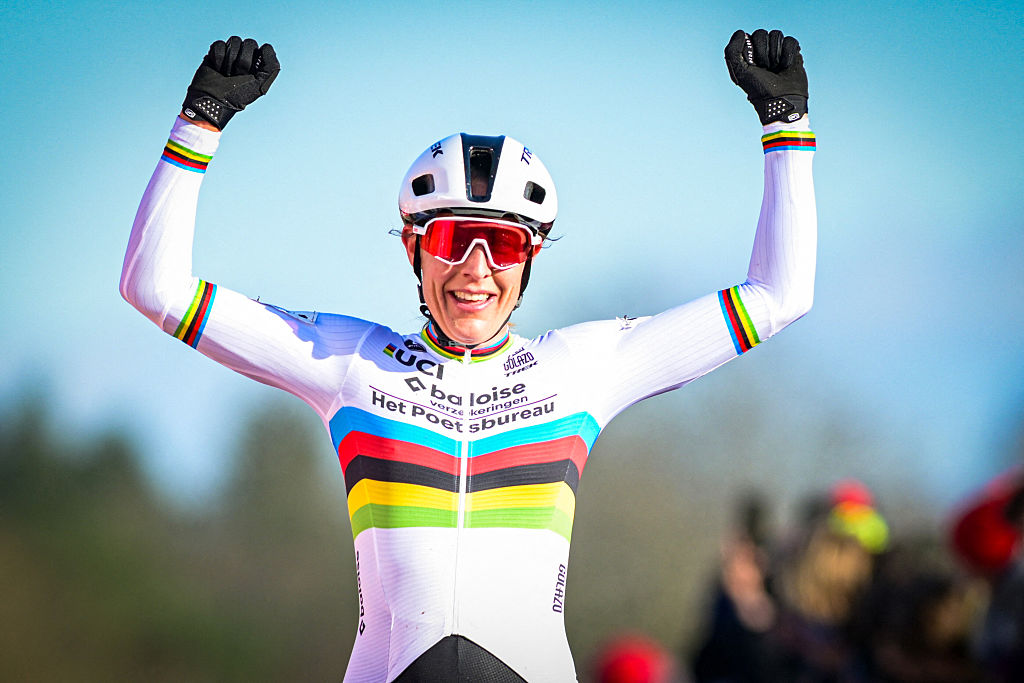Tending to cycling's emergencies
Steffen brings anti-doping ethos to pro cycling
The latest race content, interviews, features, reviews and expert buying guides, direct to your inbox!
You are now subscribed
Your newsletter sign-up was successful
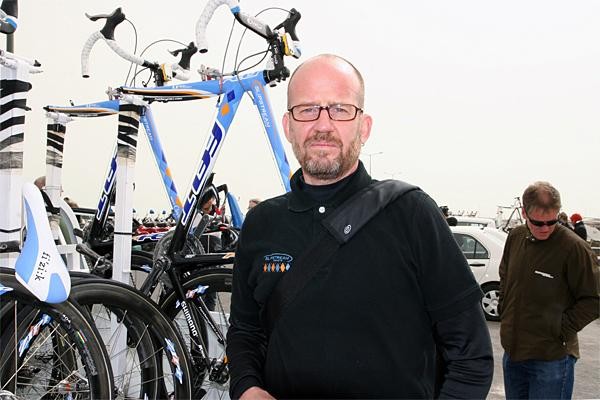
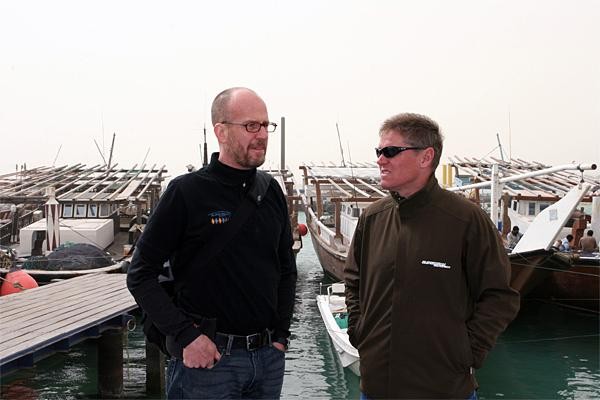
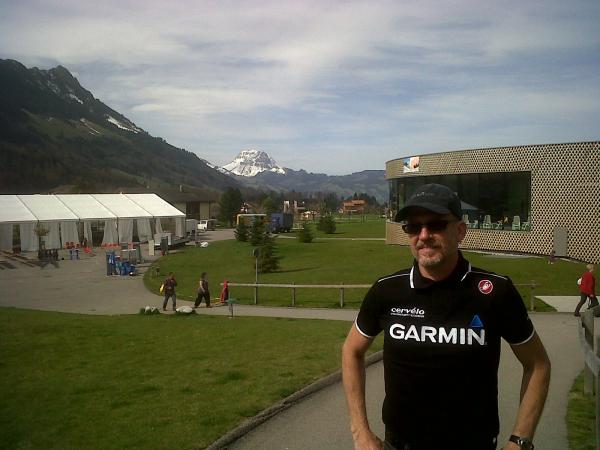
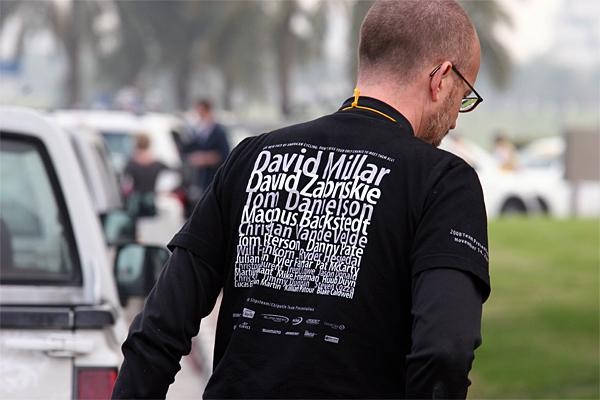
Prentice Steffen, MD is back in the business of being team doctor after a controversial comment in 2005 led to his resignation from that role. His anti-doping ethos once earned him plenty of scorn, but now that the rest of the cycling world has caught up, he can get back to ensuring that riders stay healthy and compete clean for Team Slipstream.
Slipstream's team doctor Prentice Steffen received his first race emergency call of the season early this year while at the Tour of Qatar. In the fifth stage, the team's lead-out train went down when Swede Magnus Backstedt clipped a wheel in the final kilometre and fell, taking down his team-mates Chris Sutton and Julian Dean. Steffen, who was in the second caravan car, was on the scene quickly, and was able to make sure the riders received the proper care. With his riders on the tarmac in agony, Steffen swiftly put the skills he's honed during his years of emergency medicine practice.
"In part, it proved why it's good to have a team doctor at the race. If I hadn't been there, he'd have been hauled off to some local hospital and who knows how long it would have been before he was treated," Steffen said. "I checked him over and made sure he didn't have any serious injuries. It was clear he had a clavicle fracture, so we got him on pain medication, put him in the car and took him to the hotel."
However, the size of Backstedt, who is one of the largest riders in the peloton, posed a bit of a problem. "In my medical kit I have a shoulder immobilizer, but it's for a normal sized bike racer. If you've ever seen Magnus, he's certainly not your average sized bike racer! So I fashioned one out of a pillowcase from the hotel in Doha."
Backstedt was in surgery in London within 24 hours of crashing in Qatar, which was probably a record according to Steffen. "We got him on a 2:00 am flight from Doha to London, and then he had his appointment at the orthopedist at 1:00 pm. I'm pleased it went so well. If Johnny Weltz and I hadn't been there, it could have dragged on for days. At this point in the season, it's important for him to get healed as quickly as possible."
For their efforts, the team received a public thank-you from Backstedt. For Steffen, it was further confirmation that all the hard work they'd put into building a professional organization had paid off - not only in the medical care but in the riders' performances - including the team's second place in the opening team time trial. "I was pleased to see all the work people in Slipstream had done came through with real on the road results and not just a lot of talk."
Getting in trouble
The latest race content, interviews, features, reviews and expert buying guides, direct to your inbox!
The Slipstream team has made a name for itself with a vocal anti-doping stance, and in the past few years, speaking out against doping has become downright fashionable. But not more than three years ago, Steffen earned himself a place on Lance Armstrong's blacklist when he named the American in statements made to L'Equipe, saying that he felt many of the riders in the peloton were doping, possibly even the American heroes Armstrong and Tyler Hamilton. He later was forced to retract those statements, but they revealed a strong sense of pessimism about the state of the sport.
"I've said a few times that I was an anti-doper before it was cool, but I did it at peril to my career," he admitted to Cyclingnews in January, "but it was the right thing to do from a sporting perspective."
The fallout from the article led to Steffen's resignation from the TIAA-CREF squad that he was serving at that time - a role he later resumed with Jonathan Vaughters' Slipstream squad - but the trouble didn't start there. In 2001, Steffen had told reporter David Walsh that Tyler Hamilton was one of two riders who approached him asking about EPO during his tenure as US Postal team doctor, eliciting a visceral response from the US Postal squad. While Steffen feels to this day that he was treated unfairly and perhaps dishonestly in that episode, he apparently prefers not to dwell on the past but rather to look toward the future.
"I'm so encouraged by the recent progress made by the anti-doping effort that it doesn't make sense to me to focus on the past. The future is clean sport and I'm excited to be part of the Slipstream Sports project and our efforts to clean up cycling."
The sport's turnaround
Steffen, who serves as liaison to the Slipstream team's external anti-doping testing program, sees hope for the changes the sport has made in the past year. "Finally everybody's on my side," he said, somewhat sardonically, but pointing to new anti-doping tools like the UCI's biological passport and programs like one run by the Agency for Cycling Ethics, which his team uses, as an indication that the times are changing. "I can really only speak for the ACE testing protocol, which I believe is highly effective as a deterrent to doping. I don't see it or any other system yet developed as being 100% fool-proof, but their work I believe is highly effective."
Whether or not programs like ACE's will keep riders from doping is far from certain, but Steffen is encouraged by the fact that teams are even considering using them. The concept has been around for years but had never been taken seriously until Operación Puerto helped expose the extent of the doping problem. "There are gonna be guys who will roll the dice, but now almost no idea to fight doping seems too ridiculous."
Programs like ACE cost teams hundreds of thousands of dollars - something that would have been unheard of five years ago. But Steffen sees it as a sign of the times. "I've been calling this the privatization of the anti-doping effort. The problem has always been that very good ideas, such as the bio-marker profiling that ACE does on our riders were often too costly for governmental anti-doping agencies to implement. I think extraordinary times (the current doping mess) require extraordinary measures. It's unfortunate that teams must spend such considerable sums of money on anti-doping monitoring, but that's where we find ourselves today."
The loss of title sponsors and the battering which the sport's credibility has taken in recent years has at last inspired those in charge to take drastic measures, but Steffen thinks that even more action will need to be taken. "The next step is to punish teams for individual riders' activities. It's happened de facto at T-Mobile, Astana and Cofidis," he explained, referring to those teams' voluntary suspensions from racing after having riders test positive. "But I'd like to see a formal suspension of an entire team when one of their riders tests positive."
The Slipstream team was one of the first teams to put its anti-doping policy front and center, and to unabashedly test all its riders throughout the season. Slipstream manager Jonathan Vaughters has been hailed for leading the way in turning the sport around. Steffen explained how the team's testing system worked.
"The process is something like this: ACE does the testing, they monitor the results and if they see something [suspicious] they contact me. Then I go to team management and the rider and discuss the situation, and I get their input," he described. The riders are asked about their training, travel and any other circumstances that may have caused aberrant numbers in the tests. "Then I go back to ACE and discuss what their recommendation is."
The team did encounter a couple situations in 2007 where riders had abnormal blood values and were pulled from competition until further testing could be performed to ensure the numbers weren't the result of doping. "We only had like two, maybe a third situation. Riders weren't happy to be pulled from the roster, but most understand how bad the situation is so they have to accept things that seem unreasonable."
Steffen is confident that each time, the rider's values could be explained by natural causes. "There's no way to know for sure, he admitted, "in one or two cases, the haematocrit started drifting up. Looking back, we could see that with time spent at altitude, training, and potential dehydration, the drift could have been legitimate. We suspended them for a time, and then they were back in competition after follow-up testing looked OK."
Keeping his day job
Steffen first became involved in the sport as the Medical Director for the Tour de Tucson when he was fresh out of medical school in 1986. Since then, he's been involved in races such as the Tour Dupont, New York City Marathon, and even the Olympic Games in Atlanta in 1996. He acted as team doctor for the US National team in the '80s and the Coors Light and Spago-Rossin teams before beginning a long career with the Subaru-Montgomery/US Postal team in 1993.
Since his time with Postal, he's moved on to the Mercury, Prime Alliance, and HealthNet squads before finding a home with the TIAA-CREF/Slipstream family. Caring for cyclists has become his passion, but something he does on top of his regular job as a board-certified Emergency Medicine specialist. He continues to work half-time in the Emergency Department at Queen of the Valley Medical Center in Napa, California. "There's not a lot of job security in bike racing - for anybody. Not for Jonathan Vaughters, me, or the least rider on the team... It's important for me to keep my Emergency Medicine work active," he explained. "I was with Mercury-Viatel in 2001 when the team fell apart, so I know first had how quickly a team can disintegrate."
Steffen has made the step up with the Slipstream squad to the Professional Continental level - a classification that will see him in his first Grand Tour now that the team has earned an invitation to the Giro d'Italia. With the increased profile also comes increased responsibility, something Steffen has not shied away from.
In addition to his regular job as an emergency physician, Steffen has helped found a new organisation called the American Association of Cycling Team Doctors (AACTD) to help define and refine the skill set required for team doctors. The organisation will have its first symposium in Palo Alto, California ahead of the Tour of California on February 16.
Steffen believes that a team doctor's role is like any that of any physician - to treat illness and injury and oversee programs designed to keep riders healthy. He is adamant that helping riders to dope is not part of the position.
"It is morally, ethically, and legally unacceptable for a doctor to assist an athlete in doping. It's that simple," he said firmly. A comment made in December by Eufemiano Fuentes, the doctor of Operación Puerto infamy, implied that doctors are obligated to help riders counteract the negative effects of competition. "The cyclists are like miners: they know that they are at risk, but it is their work. Sport affects your health, and the doctors have to help," said Fuentes.
Steffen wasn't impressed. "This is an old and very tired argument that I don't buy. It simply is not a doctor's role under any circumstances to be involved in illegal, unethical, and dangerous activities like assisting athletes in doping. In this area, a doctor's role is to educate and prevent the use of these substances and techniques."
Heading to the Grand Tour
Now that Team Slipstream has been granted an invitation to the Giro d'Italia, Steffen will become the first American team doctor in a Grand Tour, a job that can have its fair share of emergencies, but the emergency physician is up to the challenge. "I've never worked a Grand Tour, but having done all the other national tours, races up to 11-12 days, I suppose the work is the same," he said. "The goal is to keep as many of the riders in the race performing at their highest possible level without the use of substances or techniques on the WADA [prohibited] list.
"My primary goal as team doctor is to make everyone else's job one notch easier. Pro bike racing is a stressful, hard, and dangerous job. And that goes not just for the riders, but for the staff too," he explained, listing off some of the things they expect to see during the course of a three-week tour.
"That involves the management of a myriad of illness and injuries that the riders encounter," he explained. Food poisoning, colds, infections, crashes, whatever the race can throw at the riders will put his skills to the test. Not only will he treat the riders and staff throughout the season, as well as in the Giro, his job is also to ensure that the treatments comply with the UCI's requirements. He is also charged with interacting with families and the press should a rider suffer serious injuries, as well as helping to oversee the soigneurs care of the riders and even dabbling in some logistics along the route from the second caravan car.
Dehydration is a major problem, especially if the weather is exceptionally warm as it has been in recent years, but treating riders will be a little more complicated this year. "In the past that involved the use of some legal intravenous recovery products. As the WADA code has been revised to require a TUE [therapeutic use exemption] for all IV treatments, it's likely we'll be saving that for serious cases of dehydration, heat exhaustion, mineral depletion, etc."
To help with the enormous task of keeping the team healthy on a three-week road show, Team Slipstream management has assembled what Steffen feels is the ideal team of practitioners: five different professionals (himself included) to treat every aspect of a rider's being. "First, we have Team Chiropractor Dr. Kevin Reichlin. For musculoskeletal issues, chiropractic is amazing. For getting joints back in alignment, it's great - Kevin also does some laser treatment for recovery that seems very effective."
Steffen emphasised the importance of the chiropractic care alongside the massage therapy provided by the soigneurs. "For sports, tons of riders have found chiropractors - in Europe they're known as physiotherapists - to be essential. A top level team can't function without one.
Along with Reichlin and the team's soigneurs, riders also have the skills of Sports Physiologist Allen Lim, and may soon have access to a sports psychologist and nutritionist. "Working with teams for 20 years, those would be the five people who would make up the ideal medical staff."
During a three-week stage race, Steffen expects that riders will need help from the entire staff to ensure optimal recovery. "For the most part, the effects of a Grand Tour are unavoidable - it's really just proper rest, nutrition, massage, and whatever that confluence of genetic gifts that allow a rider to recover," he explained. "I've had interesting conversations with Allen Lim about that - you don't know who will be a Grand Tour rider until they do one. It's a very intangibly difficult to quantify quality. It's something there - an amazing ability to recover and race again the next day. A lot of guys probably don't have that..."
Looking forward to the early part of the season, Steffen, who will remain part-time with the team, is hoping to bring in an assistant team doctor to help cover some races. Until then, he works with the riders remotely when he is not on site. While the team was racing in France, Steffen had to take care of another crash victim, this time Blake Caldwell, who went down in the Etoile Bessèges.
"There were reports that he broke his hip, but he contacted me, and he got his X-rays to me by his cell phone camera, and it turned out he just has a small crack on his pelvis. It's the best possible pelvic fracture since it's in a bone that's relatively stable - it'll be painful, but not problematic in terms of healing."

Laura Weislo has been with Cyclingnews since 2006 after making a switch from a career in science. As Managing Editor, she coordinates coverage for North American events and global news. As former elite-level road racer who dabbled in cyclo-cross and track, Laura has a passion for all three disciplines. When not working she likes to go camping and explore lesser traveled roads, paths and gravel tracks. Laura specialises in covering doping, anti-doping, UCI governance and performing data analysis.
